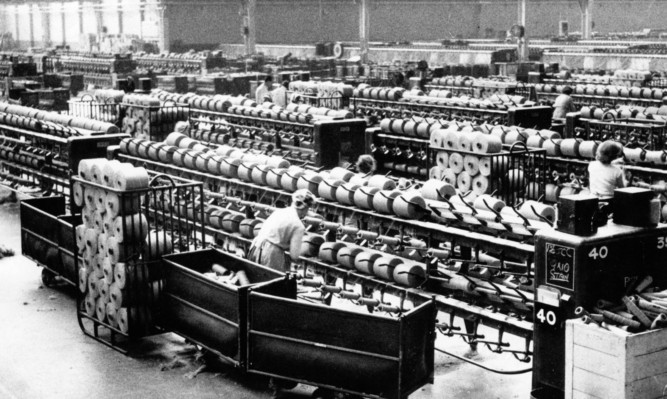A new book is arguing that the British Empire played a key role in the birth of modern Dundee.
Empire, Industry and Class The Imperial Nexus of Jute, 1840-1940 has been written by Anthony Cox.
In it he explores the development of the city during the boom in the jute industry and the impact this had on society and family life.
He also looks at links with Calcutta, whose jute factories relied on engineers and managers from Dundee.
Mr Cox, who is a tutor at Dundee University, shows how the informal support networks developed by jute workers were vital to helping them endure their often brutal working and living conditions.
He claims that more progressive and modern domestic arrangements evolved as a necessary means of coping with the challenges that working class Dundonian families faced.
“The central position of the book is that the British Empire is fundamental to the development of Dundee and it becoming an industrial cul-de-sac by the late Victorian period,” Mr Cox said.
“The book also outlines how the era of Juteopolis gave birth to what I call Dundee’s ‘oary culture’ as a result of the melding of the separate and distinctive oral and song traditions of those groups from Angus, the Perthshire Highlands, and Ireland who came to Dundee in search of work.
“As this was happening, the people who had left Dundee to work in the jute industry in Calcutta were coming back with their beliefs altered by their experiences in India, particularly in relation to their attitudes to the urban working poor.
“The increasingly competitive relationship between Dundee and Calcutta created a sometimes desperate situation for workers in the Dundee mills.
“For example, by the early years of the 20th century adult male jute workers in Dundee were thought to weigh less than prisoners in Uttar Pradesh Prison in Northern India, an incredible situation for working men in what was deemed to be the world’s most prosperous country.
“As a survival mechanism, informal social networks were created to keep heads above water and the support that Dundee families offered each other helped them to cope with sometimes desperate conditions.
“The way that they managed to carve out niches for themselves and survive, as well as their tenacity in fighting back against the worst aspects of what I call jute dependency, is the most inspiring part of the story for me.
“One unique development in Dundee was a move away from patriarchal to more democratic domestic arrangements within many households headed by unskilled and semi-skilled male workers, which, at the time, were frowned upon by many middle class commentators as being unnatural.
“Often one spouse was unemployed while the other was working and so domestic roles might be reversed with the men making meals and looking after the children.
“But, while the distinctive social structure of Juteopolis has been noted by other historians, the extent to which markedly local characteristics, such as the male ‘kettle boiler’, the female-headed household and the widespread use of child labour, was encouraged into being by British imperialism has not been fully appreciated.”
Anthony is launching his book with a public presentation and question and answer session at the university’s Dalhousie Building, Old Hawkhill, on February 28 at 6pm.
He will also be using his findings in an adult education course starting in April.
More details of this are available by calling 01382 381125 or emailing Susan Norrie at conted@dundee.ac.uk.
